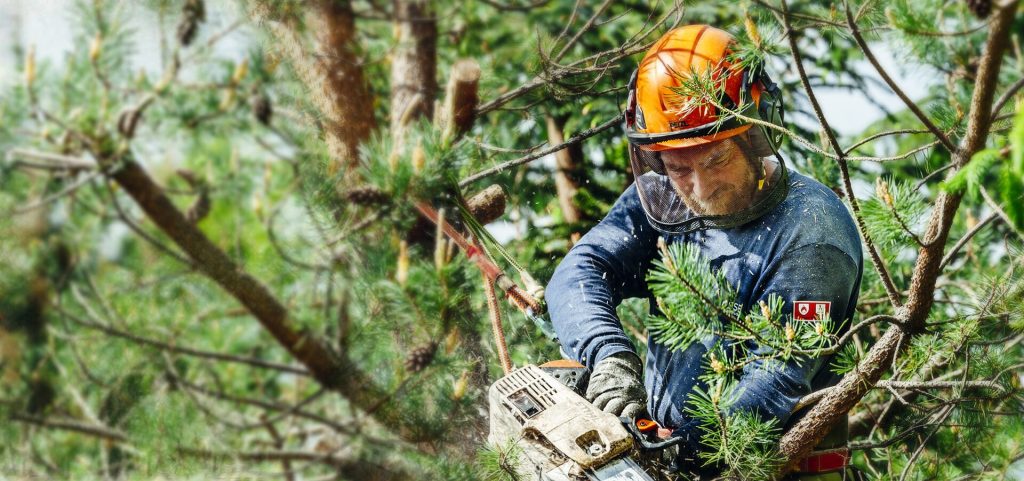Dead trees might look peaceful, but they’re anything but safe. In our hot, humid climate, decomposition happens fast. We’re talking falling limbs, root rot, and hollow trunks that become unstable. These trees are ticking time bombs, especially during hurricane season.
A dead tree doesn’t just pose a danger to your own property. If it falls into a neighbor’s yard, onto the street, or worse — on a person or car — you could be on the hook legally and financially.
And let’s not forget curb appeal. A single dying tree can bring down the entire look of your property, which isn’t great if you’re planning to sell or lease.
Legal Requirements for Tree Removal in Bradenton
Bradenton and Manatee County both have codes that cover tree care and removal. If a tree is considered “hazardous,” “diseased,” or “dead,” you may be required by law to remove it — especially if it poses a threat to structures, roads, or power lines.
In many cases, the city doesn’t wait for disaster to strike. Code enforcement officers can issue citations and fines if a dead tree is left unmanaged. Homeowners may be required to hire an ISA-Certified Arborist to confirm the tree’s condition and proceed with proper removal.
Some trees, especially older native species like live oaks, might be protected — so if you’re unsure, it’s always smart to check whether a removal permit is needed.

Does Your HOA Require Dead Tree Removal?
Many homeowners associations (HOAs) in Bradenton have their own set of landscaping and safety rules. These often include:
- Immediate removal of dead or dying trees
- Keeping lots visually uniform and well-kept
- Submitting removal requests for approval
Failing to follow these guidelines can result in warning letters or fines. HOAs usually care about safety and aesthetics, and they don’t want one neglected yard dragging down the whole neighborhood.
Before you cut or delay action, read your HOA’s covenants or talk to the board. Some even require that you replant a new tree after removal.
Insurance & Liability: Are You Responsible for a Dead Tree?
Here’s where things get serious. Most homeowners insurance policies will not cover damage caused by a dead or neglected tree — because from the insurer’s point of view, it could’ve been prevented.
Let’s say a dead tree in your yard falls during a storm. If it damages your own roof, or crashes into a neighbor’s fence, you could be seen as negligent. That means your insurance might refuse to pay, and you’ll be stuck with the repair bill — or worse, legal action.
On the other hand, if a perfectly healthy tree falls during an “Act of God” event like a hurricane, insurance is more likely to cover it.
The bottom line: Don’t wait for nature to make the first move.
Signs a Tree Is Dead or Dying (From a Certified Arborist)
You don’t need to be an expert to spot trouble, but there are a few telltale signs that it’s time to call one:
- No leaves in spring or summer
- Bark is peeling or missing
- Large cracks in the trunk
- Mushrooms or fungi growing at the base
- Branches snap easily
- Roots are exposed or lifting
If you see two or more of these, it’s time to get a professional assessment. An ISA-Certified Arborist can determine if the tree is fully dead, diseased, or still savable. In Bradenton, this evaluation can help you stay compliant with city laws and protect your home.
Permits & Professional Tree Removal Services in Bradenton
Depending on the species and location, removing a tree in Bradenton might require a city permit. This is especially true for protected trees like cypresses and live oaks, or if your property sits in an environmentally sensitive area.
Professional companies like Panorama Tree Care help with every step — from inspections to permits to safe removal. We use proper rigging, cranes, and safety protocols to ensure the tree is removed without damaging nearby structures or underground utilities.
If you’re looking for help, our tree removal services in Bradenton are available with transparent pricing, certified arborists, and full permit handling.
What to Do if Your Neighbor Has a Dead Tree Near Your Property
This situation gets tricky. In Florida, you generally have the right to trim limbs that hang over your property — but you can’t force your neighbor to remove a tree unless it’s clearly a danger.
If the tree is visibly dead or leaning, document it. Take pictures, send a friendly letter, and suggest they get an arborist’s opinion. If they don’t act and the tree causes damage, your documentation could protect you legally.
Sometimes, a letter from a certified arborist or your HOA can be the nudge a neighbor needs to take action.
Why Choose Panorama Tree Care in Bradenton
Dead trees aren’t just a landscaping issue — they’re a legal, financial, and safety risk. At Panorama Tree Care, we’ve been helping homeowners in Bradenton and the greater Tampa Bay area stay safe and compliant for over two decades.
We offer:
- Certified arborist inspections
- Emergency tree removal
- Permit support
- Clean, respectful crews
- Honest pricing, no surprises
Whether you’re dealing with one dead tree or a property full of aging oaks, we’ve got the knowledge and tools to handle it quickly and professionally.
FAQs: Dead Tree Removal in Bradenton
Do I need a permit to remove a dead tree?
In many cases, yes — especially for protected or heritage species. A certified arborist can help determine this.
Can I be fined for leaving a dead tree on my property?
Yes. If the tree poses a risk, the city or HOA can issue citations or demand removal.
How long can I wait to remove a dead tree?
The longer you wait, the greater the liability. Most insurance won’t cover preventable damage.
How much does removal cost?
It depends on the size, location, and complexity. Most homeowners in Bradenton pay between $300 and $2,000 per tree.
Take the Safe Route — Get a Free Tree Inspection Today
Don’t wait for a storm or lawsuit to make the decision for you. Dead trees don’t heal themselves — and ignoring the issue can lead to bigger problems.
Reach out today for a free tree inspection from one of our certified arborists. We’ll let you know if removal is legally required and guide you through every step of the process — from permits to cleanup.
Your safety, your home, and your peace of mind are worth it.
Call Now: (813) 234-9842






